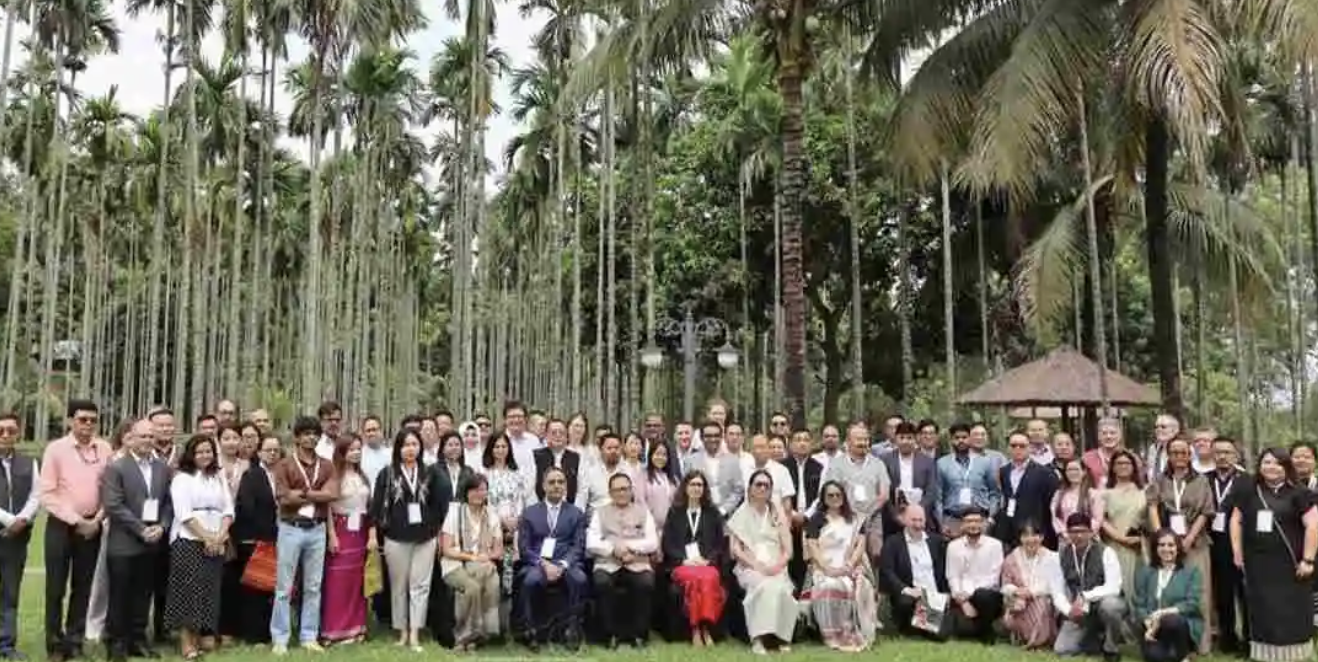This study examines how China's long-term care insurance (LTCI) affects hospital expenditures among disabled individuals ineligible for benefits, addressing a gap in existing research. Using a difference-in-difference approach with data from pilot cities and the China...
Health insurance coverage in Mexico: progress, inequalities and remaining challenges towards UHC2030
Mexico’s path toward universal health coverage (UHC) reflects both remarkable progress and persistent fragility. In their BMC Health Research Policy and Systems study, “Health insurance coverage in Mexico: progress, inequalities and remaining challenges towards...

DA raises concerns over NHI funding plan and implementation challenges in South Africa
The DA criticised Health Minister Dr. Aaron Motsoaledi for failing to present a detailed NHI costing or consult Treasury. They warned his funding proposals and lack of accountability risk corruption and failure, citing the oxygen plant tender scandal. The DA urged...

85% of Moroccans Covered, But Out-of-Pocket Costs Still High
Bank Al-Maghrib’s study reveals that despite Morocco’s 85 percent health coverage, households still pay 38 percent of health costs—well above global standards. Fragmented schemes and high out-of-pocket expenses strain families. The report urges reforms to enhance...

Details of the RIZIV care budget for 2026 in Belgium
The healthcare budget for 2026 was approved on Monday by the General Council of the National Institute for Health and Disability Insurance (INAMI). The budget includes an increase of 1.566 billion euros over the previous year, reflecting changes in the supply and...

Bridging the Health Finance Gap in India: A Call for an IRDAI-RBI Affordability Pact
India’s healthcare financing is plagued by high out-of-pocket spending and inefficient claim settlements, forcing many into debt. A coordinated IRDAI-RBI “Affordability Pact” is needed to integrate digital payments, cashless networks, and financing solutions, making...

Morocco’s Health Insurance Scheme Benefits 32 Million Citizens in 2025
In 2025, Morocco’s compulsory health insurance (AMO) covered over 32 million people, or 88% of the population. Reforms advanced unified system management, financial sustainability, and cost control ahead of transferring public-sector AMO oversight to CNSS in 2026. In...

VietNam and World Bank strengthen cooperation to expand social security coverage
VSS and the World Bank discussed expanding social security coverage, especially for informal workers. The Bank proposed raising voluntary insurance subsidies to 50 percent and introducing Monotax and flexible insurance models. Both sides agreed to enhance digital...

Private hospitals dominate Ayushman Bharat utilisation despite government majority
Despite most Ayushman Bharat hospitals being government-run, over half of treatments and two-thirds of costs occur in private hospitals. Since 2018, 9 crore treatments worth Rs 1.29 lakh crore have been provided. The scheme’s digital mission has linked 50 crore health...
Can Indonesia achieve universal health coverage? Organisational and financing challenges in implementing the national health insurance system
Indonesia’s Jaminan Kesehatan Nasional (JKN) is one of the world’s largest single-payer health insurance systems, designed to provide equitable and affordable healthcare to over 280 million people. Since its inception in 2014, JKN has reached near-universal enrolment,...

Togo Integrates Private Insurers into Universal Health Coverage Governance
Togo’s CNSS and INAM partnered with private insurers to expand the Universal Health Insurance (AMU) program on October 14, 2025. This collaboration links public and private sectors to offer complementary coverages, enhancing health protection and inclusive governance...

Ghana boosts revenue and strengthens private partnerships to advance UHC
Ghana’s NHIA generated GH¢9.76 billion in 2025 after uncapping the health levy, enabling arrears clearance and GH¢1.5 billion payouts. Dr. Bampoe announced digital claims, new tariffs, and stronger private-sector partnerships to boost transparency, fairness, and...
Piecing the Puzzle: Addressing the Multi-Payer and Fragmented Health Financing System in the Philippines
Over the past decade, government health spending in the Philippines has grown rapidly, supported by expanded fiscal space, stronger health policies, and rising national income. Despite this progress, the health financing system remains fragmented, with overlapping...

Senegal Validates Strategy to Enroll Informal Workers in Universal Health Insurance, Advancing Social Equity
Senegal has validated a national strategy to systematically enroll informal workers in Universal Health Insurance, aiming to boost coverage to 75% by 2029. This inclusive initiative, supported by international partners, targets extending health protection to groups...

Building Universal Health Coverage: Northeast Health Financing Forum Spurs Cross-State Collaboration and Reform
The Health Financing Forum held in Dimapur united policymakers and experts from Northeast India to discuss reforms and cross-state learning in healthcare financing. Led by Nagaland and the World Bank, the event emphasized innovation, collaboration, and financial...
